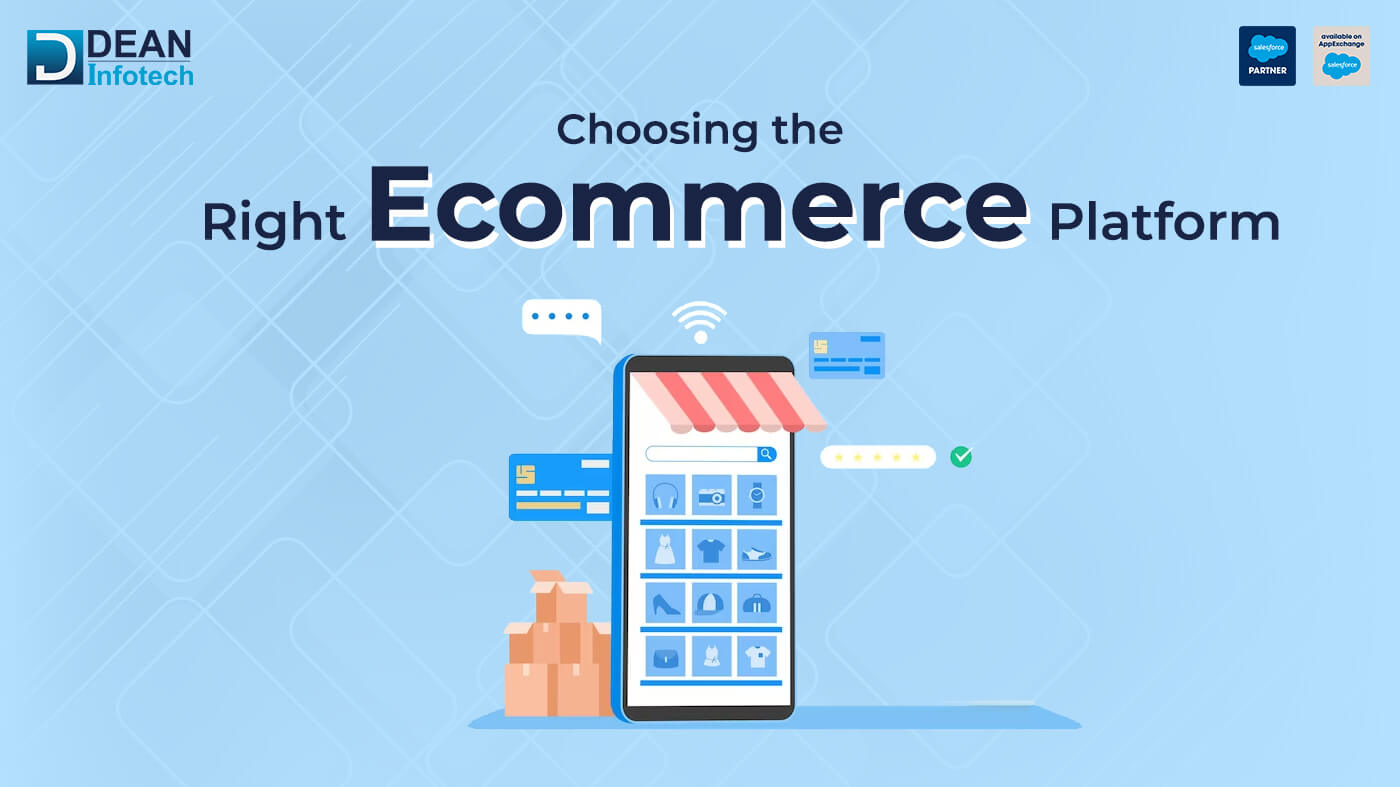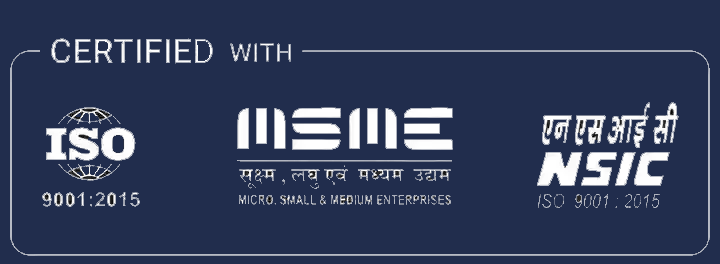Avoid Costly Development Mistakes: Choosing the Right eCommerce Platform
 Bharat Khatri Monday, March 11, 2024
Bharat Khatri Monday, March 11, 2024
Do you have difficulty in choosing the right e-commerce platform? What are the unique features of your rivals that distinguish them from others? If these questions excite you or make you curious, read on!
With the growth of e-commerce like it is today, it is fair to say that everything has been transformed. We have come so far that the US is expected to make $1 trillion in e-commerce revenues by 2024, comprising approximately 20% of all retail sales.
Selecting the best e-commerce platform is essential not for long-term profits in business. Infact, your website gives your business an online personality. Everything happens here: all transactions as well as customer relationships flourish.
Understanding Your Needs
Understanding what is needed before you start, be it personally or for an organization is very much essential. This comprehension will serve as the base for any future decisions. Here are the factors to keep in mind:
1. Business Model & Scale
B2B, B2C, or hybrid determines the most suitable platform for your business. B2B platforms should accommodate bulk purchases and custom pricing. Alternatively, for B2C traders user experience and marketing tools are more important.
2. Product Complexity and Inventory
Question what goods/services you will sell. Is it physical goods, digital services, or both? Your inventory's complexity and desire for features like variant pricing, stock management, or digital delivery options will determine which platform you should use.
3. Audience and Market Orientation
Understanding the tastes and interests of your target audience sets the base. If your market reach is global, choose eCommerce website design platforms that allow you to trade in multiple currencies. Alternatively, the platforms that offer the opportunity for customization to respond appropriately to the diversifying audiences are ideal for niche markets.
4. Technical Proficiency
To what extent is your team technically sound? If they are less tech-friendly, choosing platforms such as Wix and SquareSpace can be ideal because they have user-friendly and interactive drag-and-drop interfaces. However, if you have the teams that are technically very strong, there is always an option to go for portals which provide coding based customization.
5. Budget Constraints
Budgeting isn’t solely dependent on what investments are required. Rather, it even implies extra costing such as hosting costs and updating charges, plugins and many more.
Landscape of eCommerce Platforms
eCommerce platforms come in varying types to meet different business requirements. As you get to know the specific properties and features of these platforms you can better know how to choose the right eCommerce platform. Here is look at the few choices that you can choose from:
Shopify - All Purpose Contender
Shopify's strength lies in its simplicity and ultimate ease of use, making it one of the top choices for small-to-midsize businesses. More than simply a variety of templates, there is a beginner friendly drag-and drop interface for beginners. As we see it, the best feature of Shopify is its application, which has many plugins that can be used for creating personalized designs.
WooCommerce - The Confluence of Content
WooCommerce is the number one choice for companies which heavily rely on content marketing. It's a WordPress plugin that embeds e-commerce functions into your content rich website. This platform is very suitable for people who know exactly how they want their website to look. Its most appealing selling point is how it allows excellent content management to merge effortlessly with eCommerce.
BigCommerce: Scaling New Heights
BigCommerce is aimed at larger businesses and upward-bound ventures. It's noted for being scalable; it can easily handle large product catalogs and high-volume traffic. By natively supporting things like multi-channel selling and offering rich built-in functionality, BigCommerce surpasses the need for countless plugins.
Magento: The Customization King
Magento would be the perfect choice for a company with complex eCommerce needs and having a proper development team. It is also an open-source system, so it's as customizable for an online store as one wishes. While Magento handles extensive product ranges on a large scale, it requires much technical expertise to realize its potential.
Additional Platforms:
- Wix and Squarespace: These platforms target small-scale enterprises and corporates who work on a contractual basis. They are appreciated for their user-friendliness and attractive templates, which makes them an option for those who want to pay little attention to the technical side of work but wish to create a good-looking eCommerce store.
- Salesforce Commerce Cloud: Most suitable for big corporations with demanding requirements and needing an all-inclusive cloud-based package. It comes with robust CRM integrations, not to mention advanced marketing tools.
- PrestaShop and OpenCart: These open-source platforms are designed for those who want more flexibility or control over their eCommerce setups. Suitable for a business that has some technical savvy.
Common Pitfalls To Avoid
The eCommerce platform environment can be, at times, challenging to go around. Knowing about the eCommerce mistakes to avoid that may be alien to you is essential to form more informed choices. Let's look at some potential code-breakers to understand how to invest wisely.
1. Turning a Blind Eye To Scalability
Choosing a platform that doesn't grow with your business is a common mistake. A small and straightforward platform may seem enough initially, but later on, as your business grows, there should be room for more traffic. Anticipating the future, you should choose a scalable platform.
2. Underestimating Total Cost Of Ownership
A low upfront cost might seem tempting, but it may actually be a bit misleading. You need to watch out for the total ownership cost - not only setup fees or one-time costs like plugins, hosting, and transaction fees.
3. Compromise in User Experience
When it comes to purchasing, 83% of customers emphasize good service as a crucial factor in their shopping decisions. A single bad experience will keep 76% of consumers from patronizing a business. There are high chances that a potential user may turn away from your website, if it happens to be slow loading or with bad UX. Look for platforms that deliver an intuitive shopping experience, fast load times, and easy navigation.
4. Neglecting SEO Capabilities
SEO is key to visibility on the internet. Among the main sources of traffic for eCommerce sites, search engines take a commanding lead at 48.2%, followed by social networks with approximately 43.1% and consumer reviews with about 36.3%.
If your chosen platform lacks the essential SEO characteristics, you are going to have a hard time pleasing the crawling bots. The difficulty in making a mark over the top positions, shall lead to lower organic traffic, ultimately generating poor customer acquisition.
5. Overlooking Integration Capabilities
When selecting an e-commerce option, one trap to be avoided is failing to consider integration capacities. Integration is how well you can manage to link this platform with other software or systems that are vital in your business activities.
For instance, you could require your e-commerce platform to connect with the accounting software, inventory management system, or CRM tool. If you neglect this facet and select a solution that does not have integration functionality, it could result in an inflexible system.
6. Settling For Poor Customer Support
One serious oversight would be to disregard the place of customer support. Select a platform that has extensive materials for support, such as tutorials, a discussion board forum, and an actual customer support department ready to address concerns. This is required to quickly resolve technical issues and get the systems to be functioning again.
Tips For Making The Right Choice
Image Source: freepik.com
When choosing the right eCommerce platform, certain decisions are important since they determine the operations of the online business to a larger extent. Some of the essentials that should be considered in choosing an appropriate eCommerce platform include:
- Begin With a Clear Business Plan
- Thoroughly Conduct Research
- User Experience is Still Key
- Mobile Friendly
- Examine Security Features
- Review The Available Help and Guidance
Evaluate the level of support and training provided by the platform provider. The importance of good customer support, thorough documentation, and training materials should be considered, especially when there is a problem with technological limitations.
Conclusion
Selecting the ideal eCommerce platform is essential to your online business's success. It serves as the cornerstone of your digital operations, impacting things like general performance, scalability, and user experience.
The capabilities and tools required to enable seamless transactions, efficiently manage inventory, and build a strong online presence are provided by the ideal eCommerce platform.
That being said, we do believe that from now on, choosing the best eCommerce platform will no longer be an imposing barrier for you. Still, if you ever find yourself lost, bookmark our page to refer back to our blog and learn what determines the best eCommerce platform.








Comment